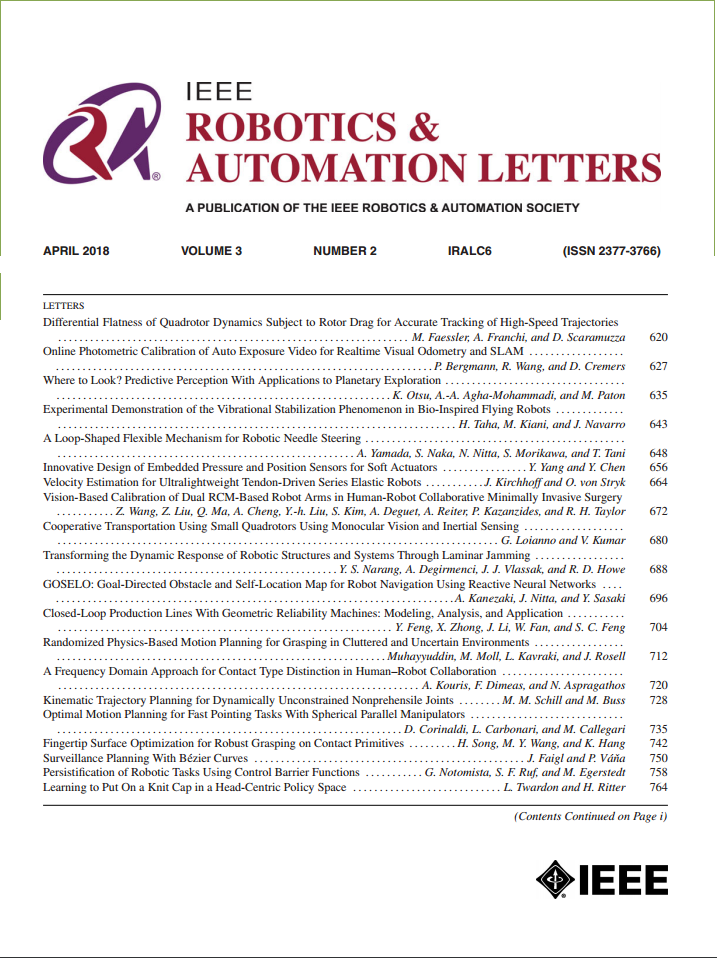Towards Autonomous Reinforcement Learning for Real-World Robotic Manipulation With Large Language Models
IF 4.6
2区 计算机科学
Q2 ROBOTICS
引用次数: 0
Abstract
Recent advancements in Large Language Models (LLMs) and Visual Language Models (VLMs) have significantly impacted robotics, enabling high-level semantic motion planning applications. Reinforcement Learning (RL), a complementary paradigm, enables agents to autonomously optimize complex behaviors through interaction and reward signals. However, designing effective reward functions for RL remains challenging, especially in real-world tasks where sparse rewards are insufficient and dense rewards require elaborate design. In this work, we propose基于大语言模型的机器人操作的自主强化学习
大型语言模型(llm)和视觉语言模型(vlm)的最新进展对机器人技术产生了重大影响,使高级语义运动规划应用成为可能。强化学习(RL)是一种互补的范式,它使代理能够通过交互和奖励信号自主地优化复杂行为。然而,为强化学习设计有效的奖励函数仍然具有挑战性,特别是在现实世界的任务中,稀疏的奖励是不够的,密集的奖励需要精心设计。在这项工作中,我们提出了复杂人类信息环境的自主强化学习(ARCHIE),这是一种利用GPT-4(一个预训练的法学硕士)的无监督管道,直接从自然语言任务描述中生成奖励函数。奖励用于在模拟环境中训练强化学习代理,我们将奖励生成过程形式化以提高可行性。此外,GPT-4自动化了任务成功标准的编码,创建了一个完全自动化的一次性程序,将人类可读的文本转换为可部署的机器人技能。我们的方法通过使用ABB YuMi协作机器人进行单臂和双手操作任务的大量模拟实验得到验证,突出了其实用性和有效性。在真实的机器人设置上演示任务。
本文章由计算机程序翻译,如有差异,请以英文原文为准。
求助全文
约1分钟内获得全文
求助全文
来源期刊

IEEE Robotics and Automation Letters
Computer Science-Computer Science Applications
CiteScore
9.60
自引率
15.40%
发文量
1428
期刊介绍:
The scope of this journal is to publish peer-reviewed articles that provide a timely and concise account of innovative research ideas and application results, reporting significant theoretical findings and application case studies in areas of robotics and automation.
 求助内容:
求助内容: 应助结果提醒方式:
应助结果提醒方式:


